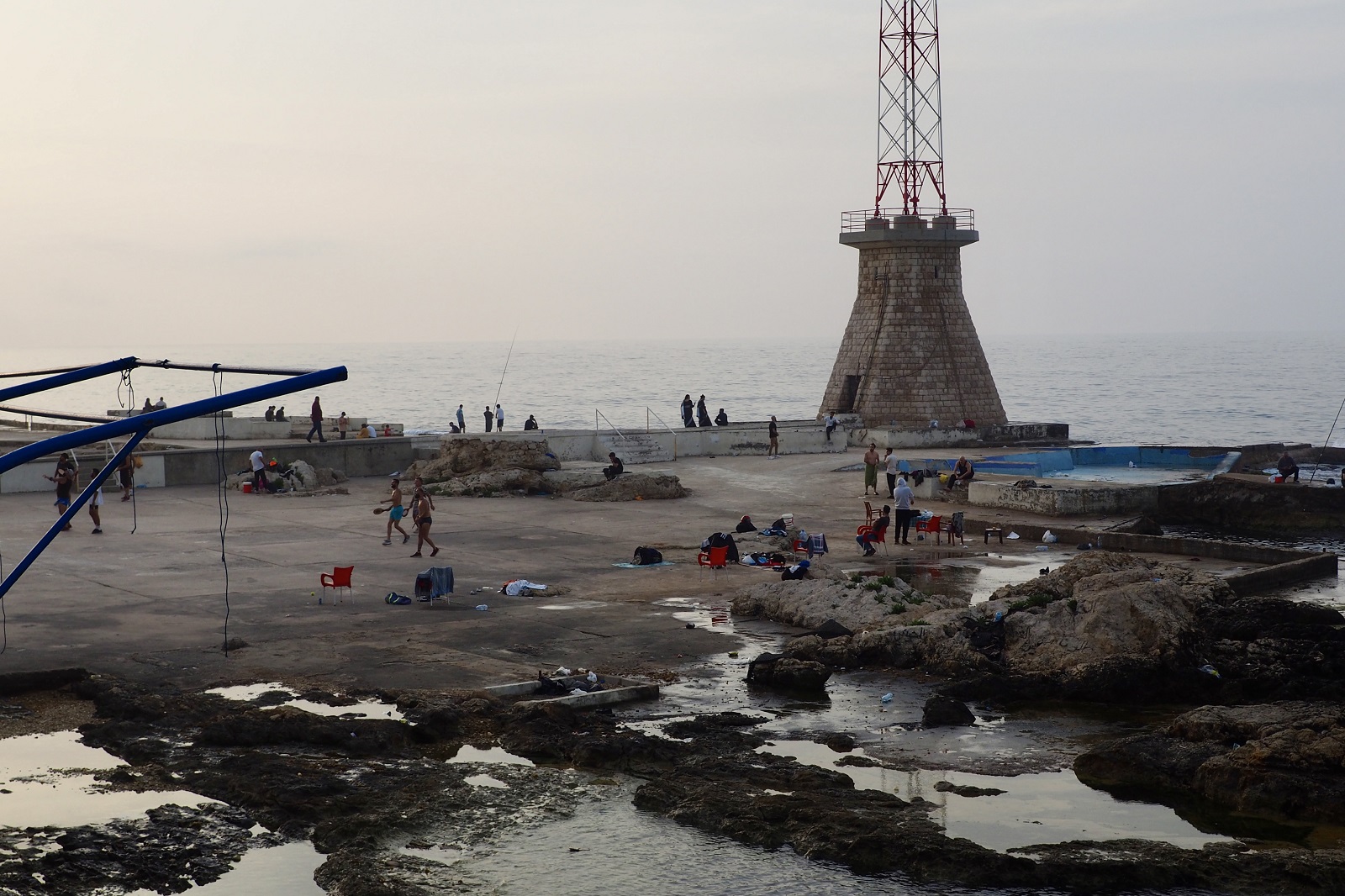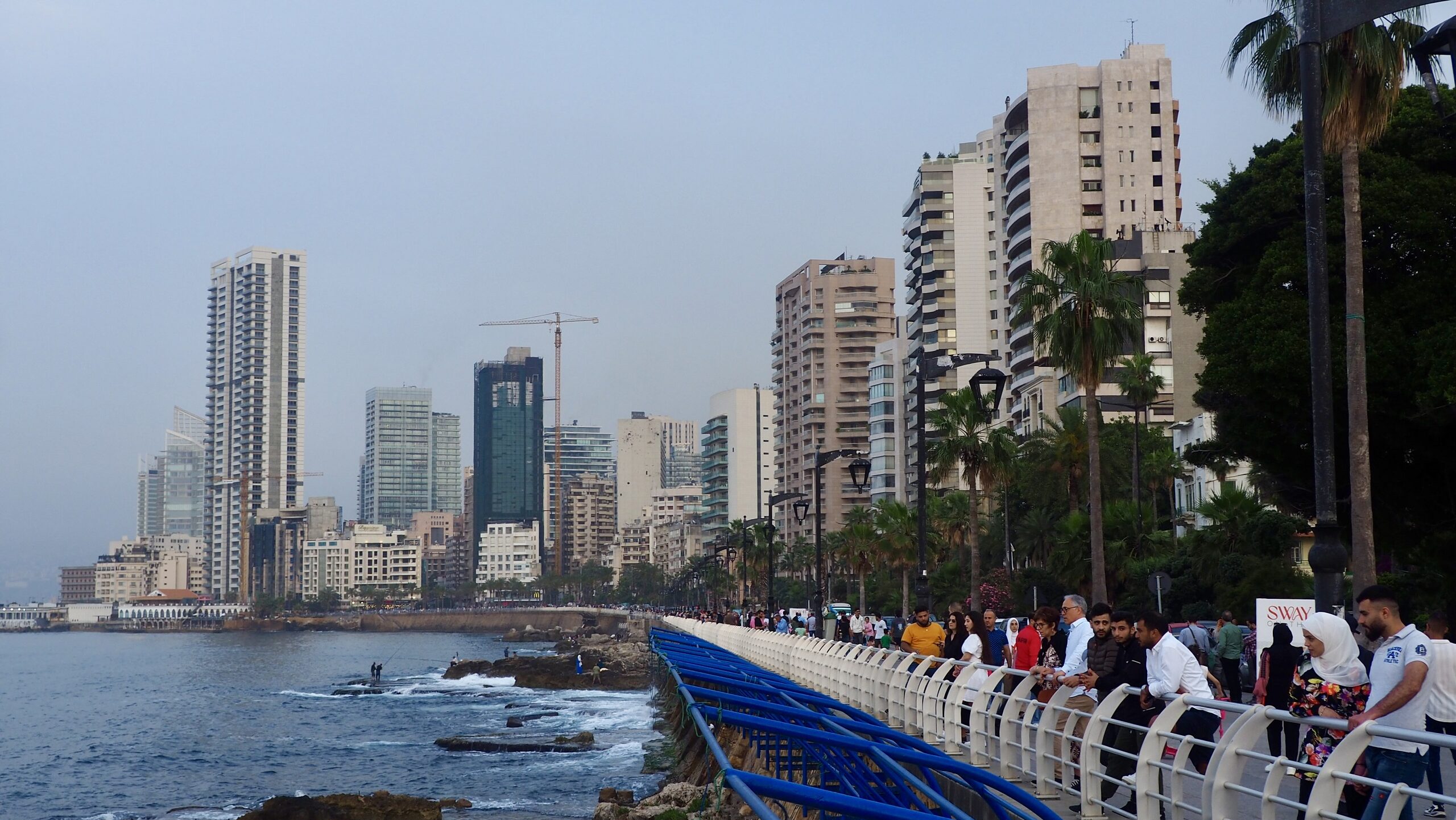Beirut’s Coastal Crisis: Sea and Society in Conflict
The Corniche promenade reveals the stark divide between Beirut's residents and their polluted, privatized coastline
[Beirut] The smell could deter anyone. The odor of urine and rotting garbage mixes with the salty aroma of the sea, stripping it of its charm. Yet, this scent attracts dozens who parade along Beirut’s Corniche, a seafront promenade overlooking the Mediterranean Sea.
Many Beirutis admire the sea, but only as a backdrop for their photos. A few daring souls dive into its waters, navigating the wire and rocks that separate them from the sea.
Despite being surrounded by the sea, most of Beirut’s more than 2 million residents live disconnected from it. Many are unaware of Beirut’s public sandy beach, located along the west-facing sea border. This beach remains almost anonymous, constantly threatened by privatization and polluted by sewage.
“People who live in Beirut do not dare to bathe on the coast of Beirut,” said an activist for participatory public policies in Lebanon, who prefers to remain anonymous. “They prefer to drive two hours to the beach of Tyre further south. We live on the coast, but we have no relationship with it,” he told The Media Line.
People who live in Beirut do not dare to bathe on the coast of Beirut
The Corniche promenade offers little access to even a patch of sand. Much of the coast is privatized by expensive restaurants and resorts, while hotels have erected walls in the sand, making a swim in the sea dependent on one’s financial means. Over half of Lebanon’s population lives in poverty, with many in Beirut classified as in “extreme” poverty.
The coast is also disfigured. The port remains in ruins from the August 2020 explosion that killed over 200 people. No one has been charged for the crime. Further south, Ramlet el Baida, the only public beach, is infested with sewage and garbage, posing serious health risks to swimmers.
“In an earlier era, Ramlet el Baida was one of the largest sandy beaches on the entire Mediterranean coast,” the Lebanese activist said. “Today, the sand stores used syringes, waste of all kinds, and the history of an entire country.” The strip is occupied by illegal beach bars.
Only people who have no other option end up bathing in the Beiruti sea
Nearby neighborhoods are home to Syrian refugees, migrant populations, and local Lebanese with first-class views of the polluted Mediterranean. “Only people who have no other option end up bathing in the Beiruti sea,” the activist observed. “The beach, a place that should unite the Lebanese population, ends up dividing it.”
“I never go there because the only time I tried to swim in Ramlet el Baida, I was harassed by a group of men,” a young Beiruti woman confessed to The Media Line.
Our history is in the sea
Illegal buildings continue to be constructed on the coast, destroying archaeology. “Our history is in the sea,” the activist said urgently.
Since 1925, permanent construction in the maritime public domain has been prohibited by decree, but politicians have largely ignored this law. Mona Fawaz, professor of urban studies and planning at the American University of Beirut, speaks forcefully about the problem in the documentary Ramlet el Baida from Beirut Urban Lab: “Today, haphazard laws undermine the possibility of settling infractions along the Lebanese coast. Policymakers continue to pave the way for the illegal occupation of the maritime public domain.”

American University of Beirut Beach. (Andrea López-Tomàs/The Media Line)
Owners or shareholders of these expensive resorts include former prime ministers Rafic Hariri, Saad Hariri, and current Prime Minister Najib Mikati. “These violations began during the Lebanese civil war [1975-1990] due to the absence of public institutions,” the activist said.
“After the war, the warlords became the institutions and continued the violations: the government issued as many as 77 special decrees allowing construction on the coast,” he added.
Gone are the family portraits on Beirut’s coast and the celebrations at Ramlet el Baida. Now, to reach safe Mediterranean waters, you must pay at least $20 per person.
Beirut has a sea, but it does not belong to her. “The city has lost its history, its spirit, because a city without public spaces is a city without souls,” the activist said.
The Mediterranean that caresses Beirut’s contours hides its history, current and past. Many who disappeared during the civil war were thrown into the sea. Today, the bodies of migrants seeking a better life coexist with them, along with the city’s waste.
Without caring, Beirut’s citizens distance themselves from their waters. They can stand the smell but not the touch of so much death and dirt.

